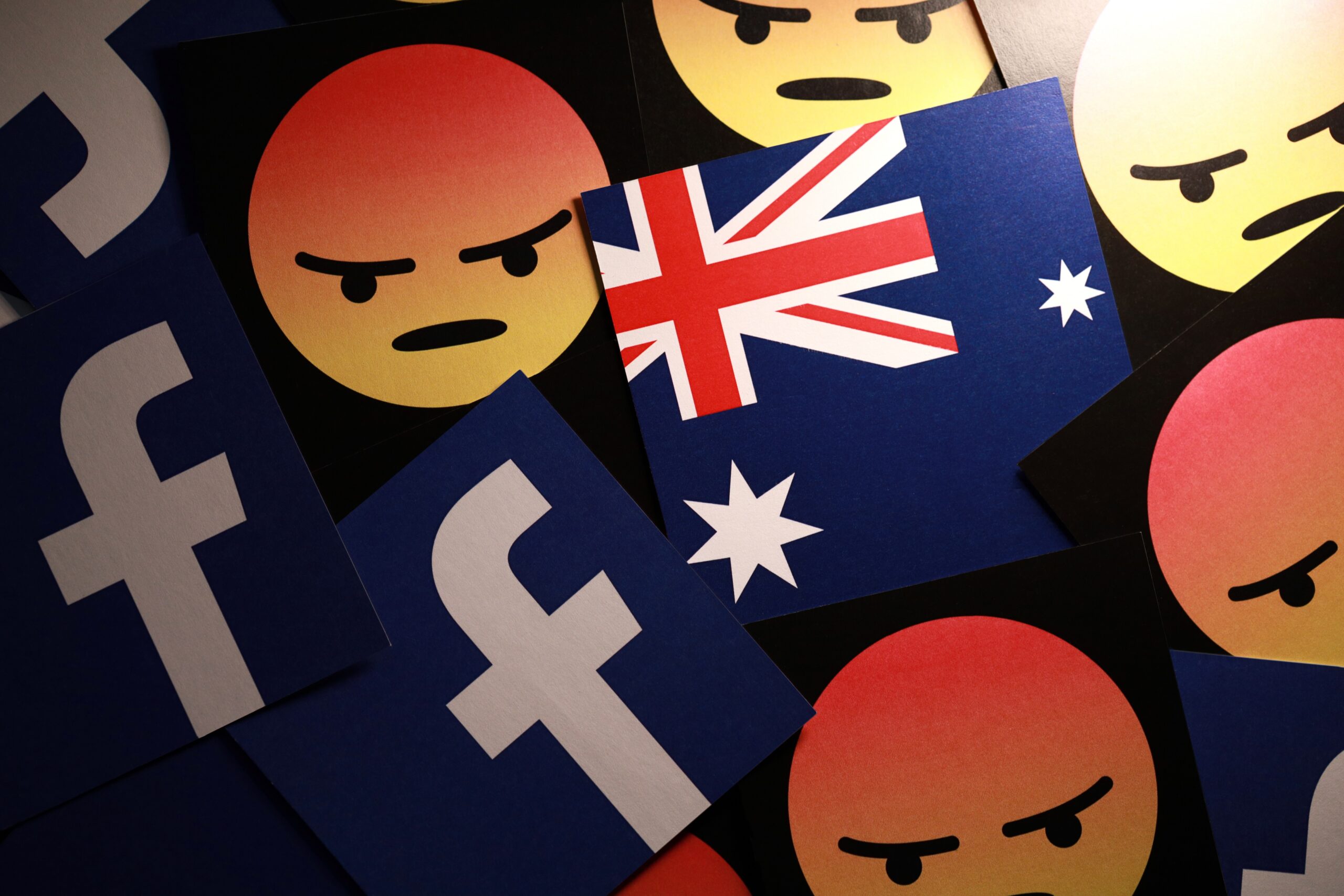Google threatens cutting out NZ media, while job losses mount
29th October 2024
Google has warned it will stop linking news stories on its search engine and axe its current commercial deals with New Zealand’s media companies if the government goes ahead with the Fair Digital News Bargaining Bill. It comes after both TVNZ and Whakaata Māori announced job cuts and restructures to cope with worsening finances.

IN BRIEF:
- Google announced it would stop promoting New Zealand media’s news stories if the Fair Digital News Bargaining Bill was carried out by the government.
- Public television stations, TVNZ and Whakaata Māori have both made budget cuts and an internal restructure.
- A new study has suggested New Zealand counts the highest rate of news avoidance in the world.
IN FULL:
– By Charlotte Pion
Google has made its opposition clear regarding New Zealand’s Fair Digital News Bargaining Bill. At the beginning of October, the Tech Giant campaigned against the legislation by announcing it would cease the promotion of local news stories on its search engine and platforms if the bill were to go ahead. As PMA reported recently, the government has decided to progress with the bill, which now sits before parliament.
The bill was drafted to equalise the balance between New Zealand’s news organisations and tech companies who shared their news stories on their platforms.
It was met with a high level of support from news media and politicians, as it would bring a significant funding stream to a currently struggling news media industry.
Read more: Coalition to press ahead with Fair Digital News Bargaining Bill
The Act party still opposed to the bill, warning that smaller media outlets would particularly suffer if Google carried through with their threat, as they would have greater difficulty in reaching audiences.
However, Google, who was included in the negotiations over the bill’s drafting, objected to the compromises made in the legislation. One of the provisions proposed a link tax, which would require Google and other tech companies to pay for linking to news articles. But the tech giant was firmly opposed to this provision.
“We’ve been transparent with the government that if the bill were to proceed on its current trajectory and became law, we would be forced to make significant changes to our products and news investments. Specifically, we’d be forced to stop linking to news content on Google Search, Google News, or Discover surfaces in New Zealand and discontinue our current commercial agreements and ecosystem support with New Zealand news publishers,” said Google’s New Zealand country director Caroline Rainsford.
Listen toour podcast
Uncovering and exploring the biggest
issues facing public media
They also expressed their concerns to Media Minister Paul Goldsmith, that the bill would eventually be harmful to small publishers and would be contrary to the principle of an open internet.
Goldsmith said the dialogues with Google were still ongoing. “We are still in the consultation phase and will make announcement in due course,” he said in a statement. “My officials and I have met with Google on a number of occasions to discuss their concerns, and will continue to do so.”
Somewhat paradoxically, Google has been, since 2022, supporting the news industry in New Zealand to an extent, by making commercial deals with news media organisations. It’s been claimed that these deals have injected more than $10 million into the news media.
The Fair Digital News Bargaining Bill would bring Google to deal with news publishers instead of media organisations directly.
What are the stakes?
If Google carried out its claim, it could bring the “end-of-days of journalism in New Zealand” said former head of Network at Warner Bros Glen Kyne.
For news media organisations, it could impact their revenues. Many news outlets depend on the traffic brought by big-tech owned platforms, particularly to attract advertising investors, which was not without its own challenges, given tech giants already receive a large proportion of digital advertising revenues.
Without this traffic from Google’s search engine, news media organisation could see a significant drop in audience numbers. Anna Rawhiti-Connell, writer and head of audiences at the Spinoff told RNZ’s Mediawatch that it could ultimately have an impact on these revenues, and subsequently, on the industry. “The minute there’s a drop-off [in audiences], there’s implications for the sizes of our audience – and then has an impact on the number of journalists that have jobs,” she said.
“The government of New Zealand should be able to make laws to strengthen democracy in this country without being subjected to this kind of corporate bullying.” – NPA & Allied Press
It would also greatly impact the ways in which audiences access information, as if Google followed through on its threat, it “would essential end wide distribution for New Zealand news media in a digital context,” reported The Spinoff.
Another worrying dimension to this issue concerned the safety of people in times of crisis. With the increased tendency of news consumption online and on social media platforms, the difficulty of accessing quality information quickly in crisis situations such as climate disasters can put people’s lives at risk.
Google accused of “Corporate bullying”
Despite the threats of Google and Meta, who claimed it would simply cease running news stories from New Zealand like it did in Canada, media organisation, news publishers and the government seem determined to advance the legislation.
“[Google’s] statement about the Fair Digital News Bargaining Bill deliberately misrepresents the legislation – and demonstrates the kind of pressure that it has been applying to the government and news media companies,” said the spokesperson of news publisher NPA in reaction to Google’s warning in a joint statement with Allied Press.
“The government of New Zealand should be able to make laws to strengthen democracy in this country without being subjected to this kind of corporate bullying.”
Additionally, if the government decided to give up to the pressure and drop the bill, it would reveal it lacks the power to stand up to Big Tech’s influence, or that they wield a certain veto over New Zealand’s parliament.
Bargaining codes, a growing future?
New Zealand has been one of the few countries who initiated legislations aiming at mitigating the significant power imbalance between news organisations and big tech companies such as Google and Meta.
“Not a single organization representing journalists and news workers agreed to this undemocratic and secretive deal with one of the businesses destroying our industry,” – The Media Guild of the West, California
In Canada, the government passed the news media bargaining code in 2021. Since the law passed, Meta banned Canadian news from its social media platform Facebook. Google, on the other hand, signed an agreement with the government to pay $100 million to Canadian news media companies to continue featuring their news content on its search engine.
Australia and the State of California have also advanced similar bills, which met the direct disapproval of Meta warned it would repeat the Canadian playbook. Google entered negotiations with governments and renewed deals with news publishers and signed agreements to support the news industry.
However, these deals were not looked on favourably, with the Californian Union The Media Guild of the West calling the deal “vague” and “opaque” and that “not a single organization representing journalists and news workers agreed to this undemocratic and secretive deal with one of the businesses destroying our industry,”.
These deals were criticised that they did not provide sufficient resources to bring independent news out of their unstable and difficult financial situation.
PSM shrinkage and growing news avoidance

The timing of this ordeal could not be starker, demonstrating the vulnerability of media companies in New Zealand at present. Following the closure of Newshub, a commercial television news station earlier this year, other organisations are also downsizing.
The state-owned but commercially funded TVNZ has announced a new wave of budget cuts along with a reduction of its operations. The broadcaster has to save $30 million. Heavy financial and job cuts were already announced in April, along with the cancellation of certain programmes.
This time, TVNZ decided to end its website 1News by next February, revamp its youth news site Re:News, and also plans on developing its on-demand platform and digital strategy.
These proposals also included the creation of a creative hub and a “centre for excellence for data, analytics and AI” – plans on which they did not comment further.
However, the plan raised concerns not only for TVNZ, but for the media landscape in New Zealand in general.
According to E tū union’s Michael Wood , “the scale of change being proposed here is enormous. This is not just a transformation within TVNZ, but one that could have far-reaching consequences for the entire media sector.”
The Union stated that even if a digital transformation was understandable, it still had concerns over the future of the skilled staff that could be impacted by these changes, and ultimately the “essence” of TVNZ’s mission.
Read more: RNZ-TVNZ merger scrapped
Elsewhere, Whakaata Māori in August announced a significant restructure, which will see the Indigenous broadcaster focus on producing fewer high-impact programmes, while the Te Reo channel will move to online only. Those decisions were accompanied by a wider organisational and leadership restructure.
A month later, the broadcaster announced there would be job cuts as well, with the broadcaster facing a decrease of NZ$10 million over the next three years.
Additional to the current struggles faced by the news media sector, recent research revealed that New Zealand has some of the highest rate of news avoidance in the world.
According to the research, the major reason why New Zealanders choose to limit their exposure to the news, was because they find that the heavy stream of negative stories can have a detrimental impact on their overall well-being. It also showed that politically polarised groups were more likely to switch off the news than people with a centrist political leaning, which was linked to a decline of trust in the media.
News avoidance has increased around the world, but the situation in New Zealand has shown to be particularly unique, as while the levels of news avoidance are high and a decline in trust is growing, another study revealed that there has been a growing interest in the news.
Given the current battle with Google added to the other pressures coming from multiple fronts, the news media industry in New Zealand is poised to face challenging times in the coming weeks and months.
Related Posts
3rd July 2024
New Zealand gov’t to press ahead with digital bargaining bill
New Zealand’s gov't is considering…




